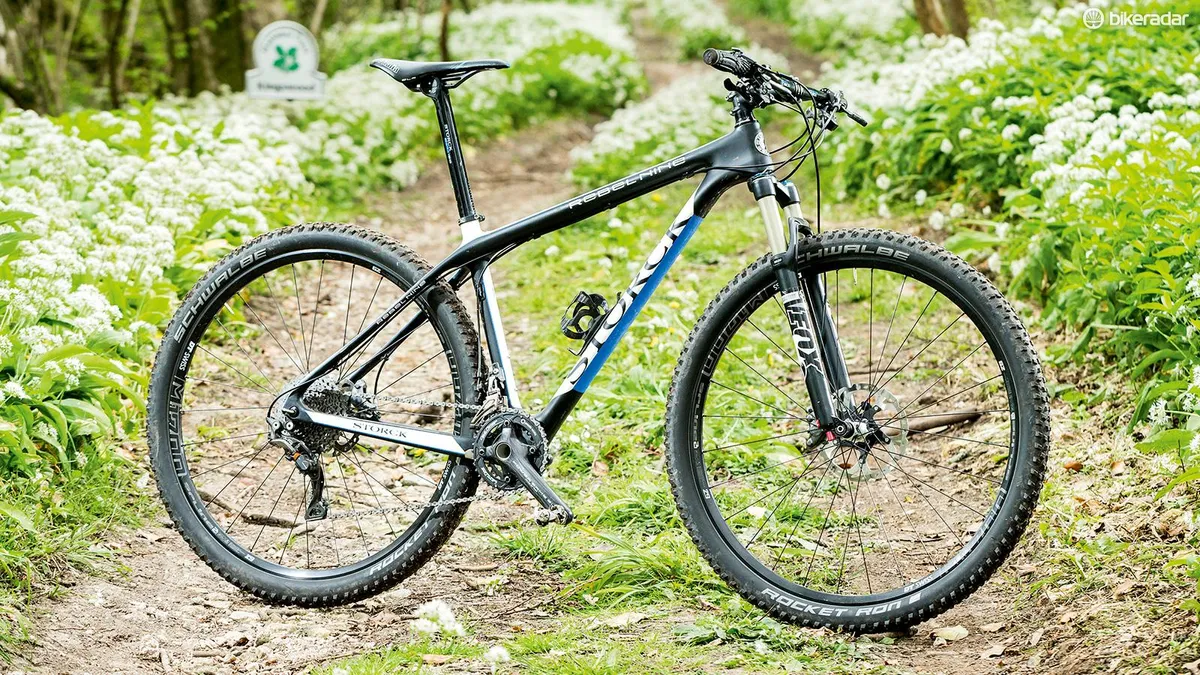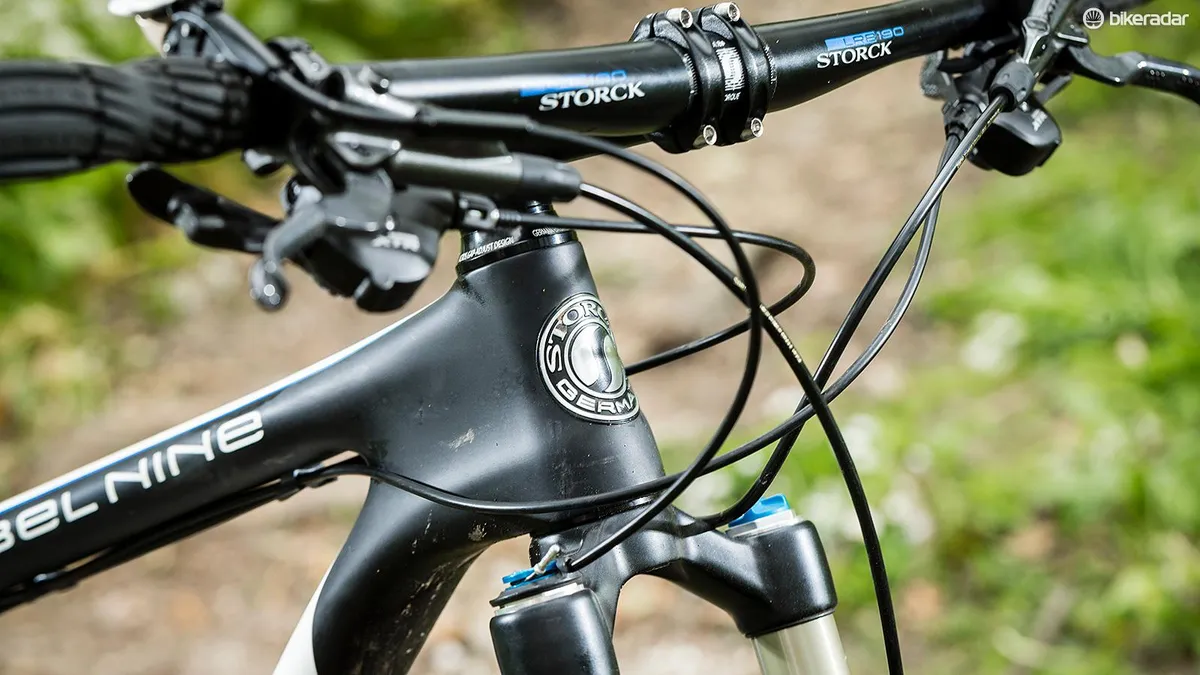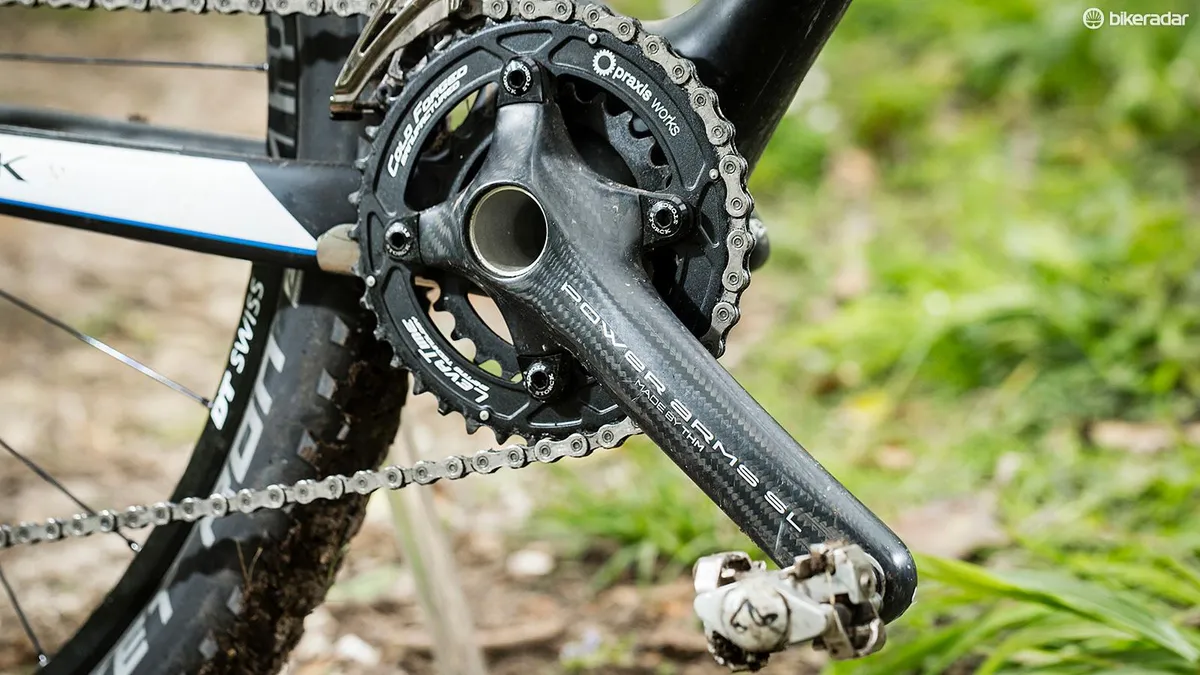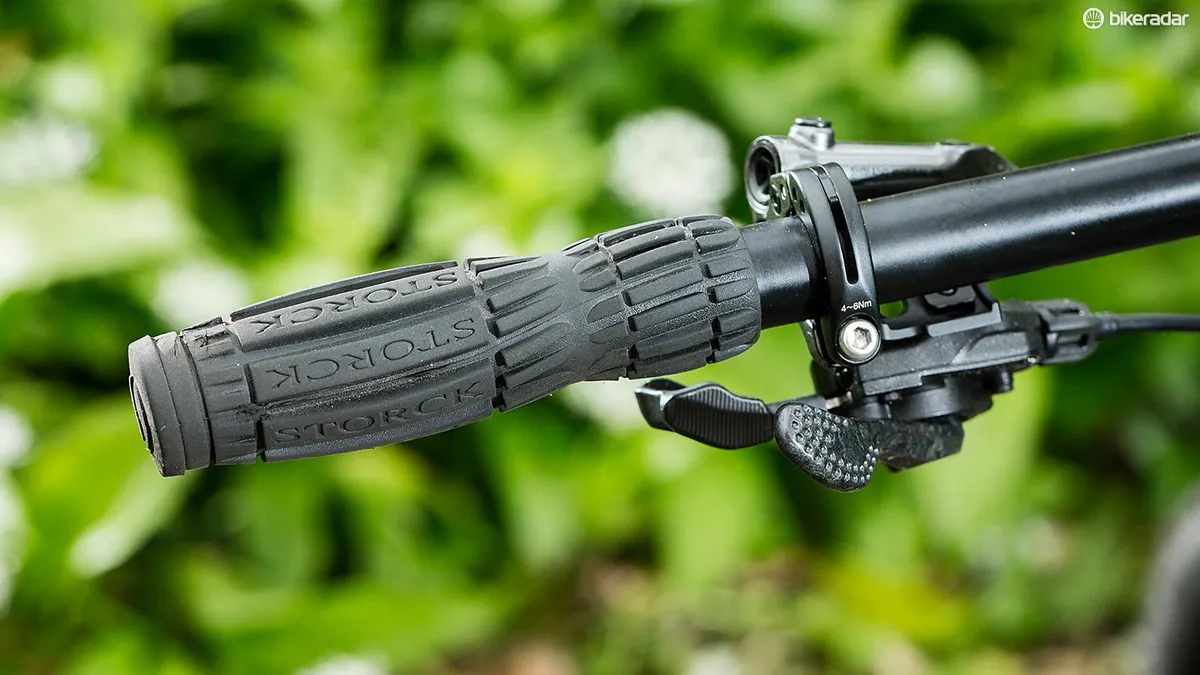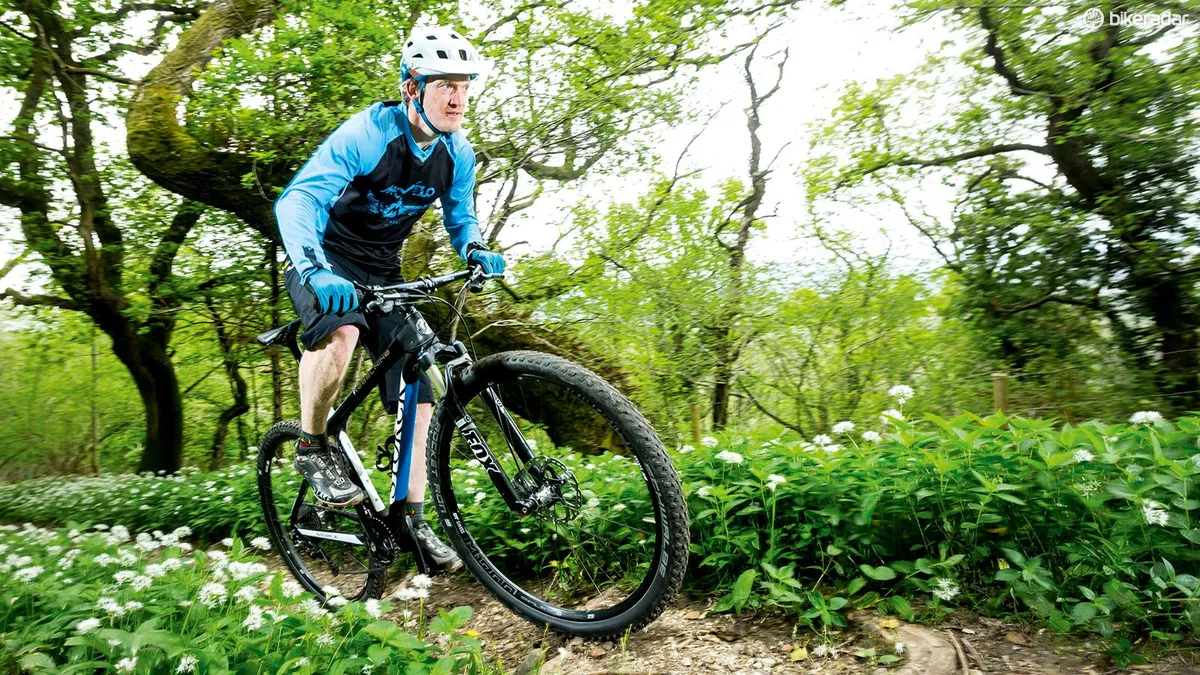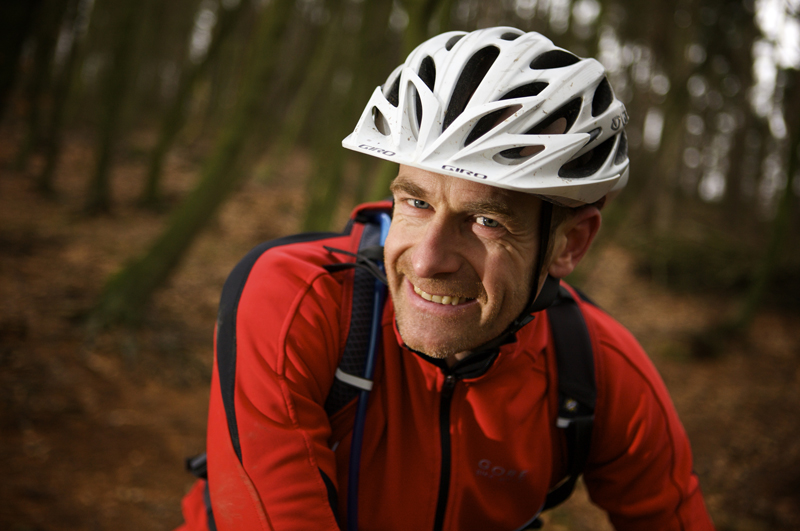Storck is synonymous with high performance carbon bikes, and the Rebel Nine in no way lets the side down. Its short reinforced head tube with bulged bottom section keeps the 700mm flat bars as low as possible over the big 29er front wheel for an appropriately aggressive first impression.
The massive flat oval top and down tubes and oversized seat tube triangulate the big PF92 block and swollen seat tube junction. Road-flat seatstays curve down over the top of the chainstay-mounted brake.
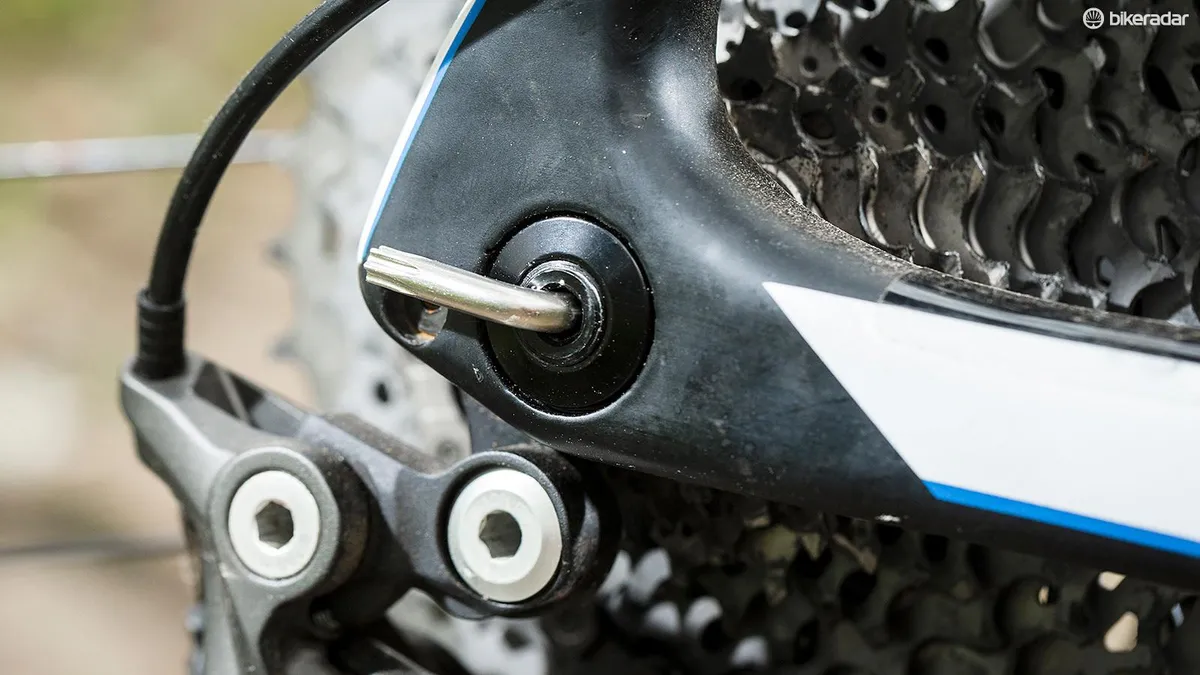
Rather than a heavy cam lever the 142x12mm axle uses a Torx key that tucks neatly into the driveside axle end when not being used for tightening/loosening. The wide stance chainstays neck down slightly to clear cranks and tyre then head straight to the rear axle for maximum power transfer.
Max power build
Our tasty XTR build sample had also been upgraded with massive carbon arm THM Clavicula cranks and Praxis twin rings for maximum torque transmission. Unsurprisingly that meant muscular acceleration and gear grunting strength were the most obvious trait of the Rebel Nine and whenever comparative testing became a pure power play situation the Storck inevitably surged ahead.
Flattened tube sections and carefully laid up carbon give the Storck more forgiveness than you’d expect considering how well it translates your energy into speed
While the 1150g frame weight isn’t particularly low, gram-saving components such as Storck’s own carbon bars and Monolink seatpost direct clamping onto the Selle Italia saddle as well as an ultralight stem kept weight just under 10kg for our large bike, so extended climbing isn’t an issue either.
But we’d expect better than the functional DT Swiss M1700 wheels, occasionally clunky Performance grade Fox F100 forks and cheap Performance grade Schwalbe tyres on a superbike like this. The big ribbed Storck grips don’t do descending comfort any favours either.
Old-school angles
While some progressive brands such as Scott and Whyte have slackened the handling of their race bikes for a more stable feel on descents, the Rebel Nine stays with classic old-school 71/73-degree head/seat angles. It’s certainly not a recipe for cocksure trail swagger but it keeps it keen on tight turns at slow speeds and feels well matched with the 700mm bars and 100mm stem.
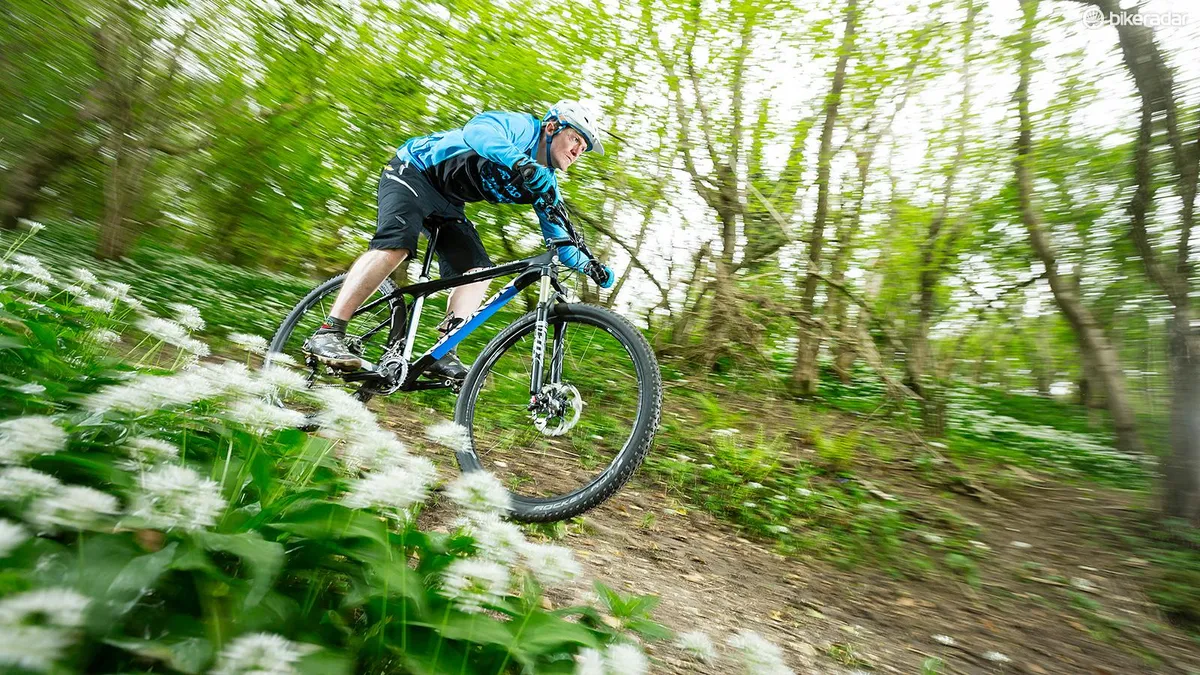
Those flattened tube sections and the carefully laid up carbon also give the Storck more forgiveness than you’d expect considering how well it translates your energy into speed and reactions into direction changes.
As such the Rebel Nine isn’t just a blunt racing tool but a well honed artisan instrument that’s as well suited to frantic race laps as hunting down far summits. Given our grumbles about spec we’d probably go for a custom build on the frame rather than the complete bike package here though.
